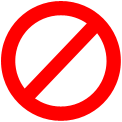Sewer & Septic System Do’s & Dont’s
Following the guidelines below will help keep your current system from developing serious problems and costing you money due to frequent repairs. It will also keep our Environment and Wildlife safer. A few Do’s & Don’ts go a long way in preventing your system from developing serious problems. Download a copy of the Do’s & Don’t here.
DO’S: 
- DO – Following the suggestions listed below may save residents money and avoid significant inconvenience, as well as the cost to the resident or community for clearing and repairing blockages.
- DO – Place liquid fats, oils and grease (FOG) into a jar or container with a lid and then dispose in the trash on trash collection day. Wipe down greasy pots and pans with a paper towel prior to washing in the sink or dishwasher.
- DO – Place a wastebasket in the bathroom to dispose of solid wastes. Disposable diapers, and personal hygiene products do not belong in the sewer or septic system.
- DO – Use a strainer over the drain in your sink, tub and shower. Then, empty the collected material into the garbage.
- DO – Use the manufacturer’s recommended amount of detergent for washing in the kitchen or laundry. The average household uses three times more detergent than manufacturers recommended for washing dishes and clothes. When these detergents enter the sewer or septic system, they hold large amounts of fats, oils, and grease in suspension making cleaning and treating the wastewater difficult and more costly. In addition to saving money on buying detergents, by cutting down on the amount of detergent used, there will also be less phosphate in the environment to cause the growth of algae in water.
DONT’S: 
- Do not – pour fats, oils and grease from cooking down any drain in or outside of your house. If your pots and pans are oily or greasy, don’t rinse them; wipe them out with a paper towel, then wash them.
- Do not – pour sour milk down the drain. One liter of full cream milk has enough fat in it to cover the surface of an Olympic-sized swimming pool.
- Do not – use the toilet as a wastebasket or garbage can.
- Do not – Flush medications of any kind down the toilet or drain. The chemicals found in medications eventually will leach in to the ground water and will harm nature, wildlife and you.
- Do not – use the sewer as a means to dispose of food.
- Do not – discard food scraps, tea leaves, coffee grounds and eggshells down the toilet or drain.
- Do not – flush razor blades, pharmaceutical products, cigarette butts, nail polish remover, toilet deodorant dispensers or other non-biodegradable products down the toilet. Also, toys can find their way into the system and cause problems.
- Do not – place jewelry and valuables on the edge of the basin or the sink Once flushed down the toilet, valuable and valued items are very difficult if not impossible to recover.
- Do not – flush diapers, sanitary napkins, tampons, convenience pads, surgical bandages, syringes, and cotton tipped stems or panty hose down the toilet. Do not dispose of plastics and plastic film from personal hygiene items, including disposable diapers.
- Do not –pour paint, engine oil, pesticides or chemicals down the sink, and don’t try to burn them. Some hazardous materials can corrode the septic tank or sewer, while others complicate the treatment process. In fact, dumping them in the sewer is illegal and could subject you to a fine. This isn’t only because of the threat of these hazards getting into the environment; but also because these chemicals pose a health threat to yourself or maintenance crews working in the sewers. Similarly, by throwing hazardous materials in the garbage, you are creating a risk for garbage collectors.
- Do not – flush a commercial grease interceptor with hot water to clear or clean the interceptor in lieu of cleaning and pumping out the interceptor.
